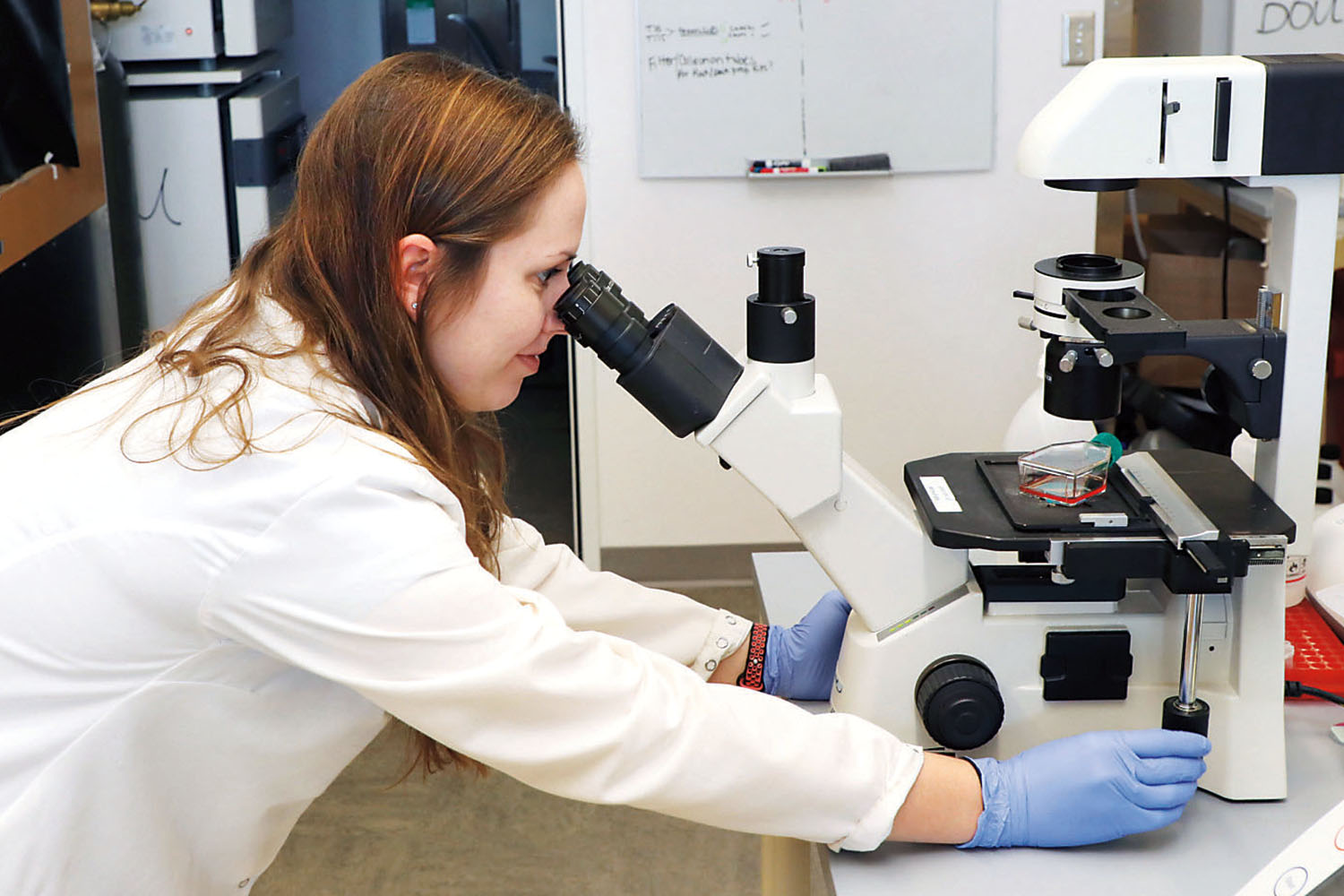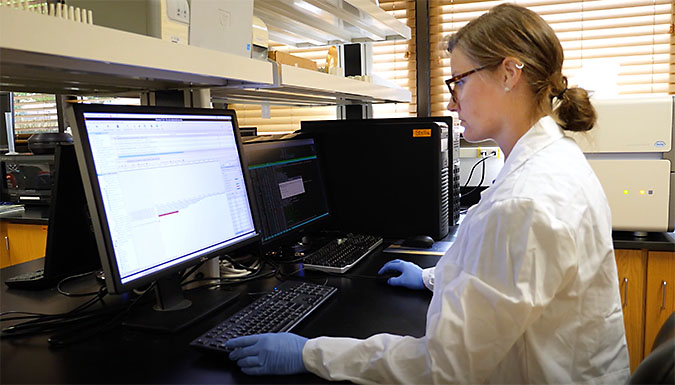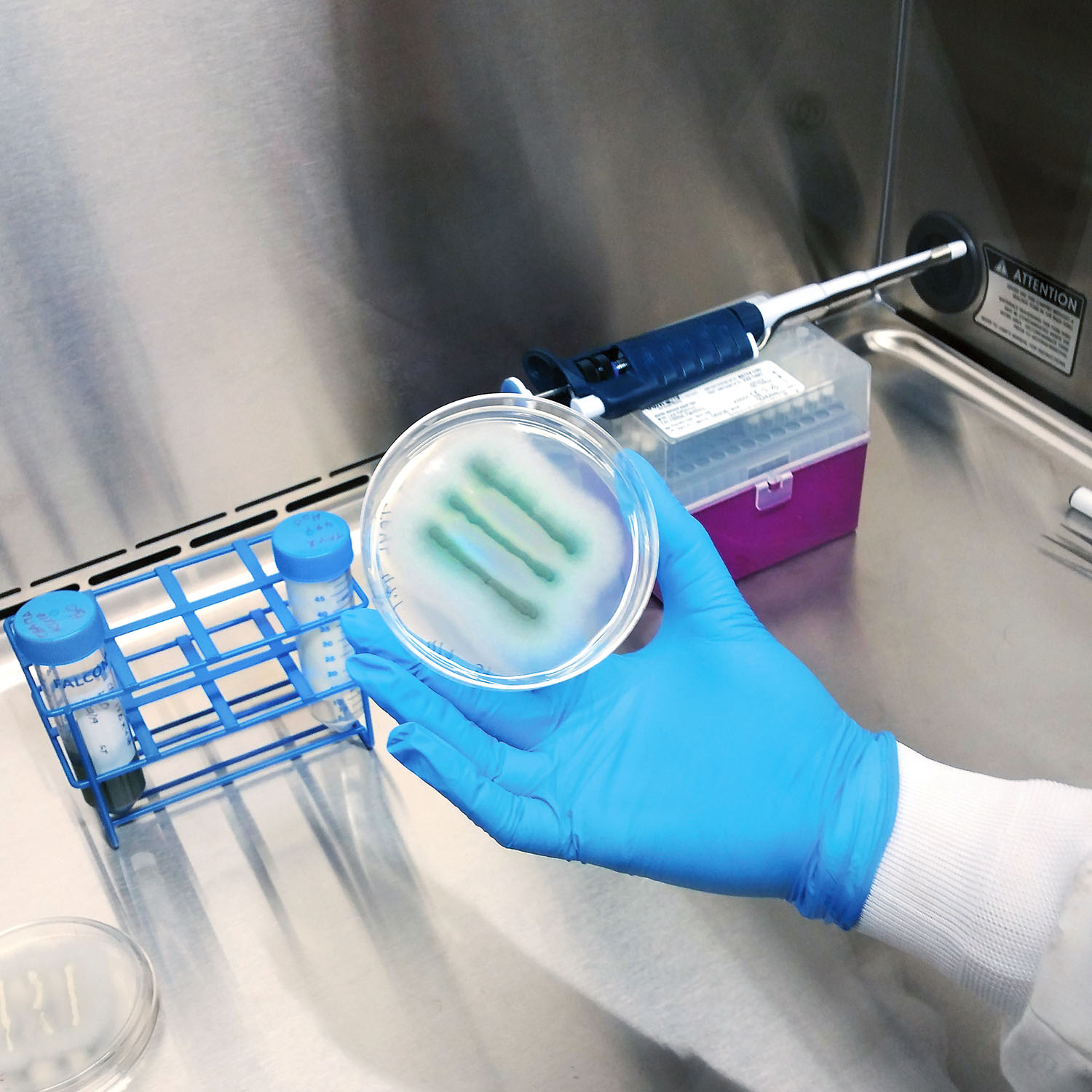Plan of Study: Microbiology
 The Department of Biological Sciences offers M.S. and Ph.D. degrees in microbiology.
The Department of Biological Sciences offers M.S. and Ph.D. degrees in microbiology.
Living organisms that are invisible to the naked eye — bacteria, archaea, fungi and viruses — reside in and around us at all times. Some benefit our health, and some cause disease. Microbiology research areas include infectious diseases, immunology, microbial ecology, microbiomes, environmental microbiology, antibiotic resistance, biofilms, bioinformatics and applied genomics.
Facilities supporting this research include the Clemson Light Imaging Facility, the Palmetto High Performance Computing Cluster, the Clemson University Genomics and Bioinformatics Facility, the Clemson Experimental Forest and the Eukaryotic Pathogens Innovation Center. Faculty in the Department of Environmental Engineering and the Department of Chemical Engineering also train students in microbiology.

Program Overview
What Do Our Students Say About Our Program?
“One of the things that attracted me to the microbiology program was the availability of technology that we have here on campus," says Lauren O’Connell, a graduate student in the microbiology program. “We have a bunch of awesome sequencers and some high-powered computing … things like that are important with microbiome research.” Watch the video to get an overview of the biological sciences graduate program at Clemson.
Watch the VideoPlans of Study
 For more information about degree requirements and curriculum, review the most recent Graduate Student Guide (PDF) for the Department of Biological Sciences. Descriptions for courses within our department can be found in the University’s course catalog.
For more information about degree requirements and curriculum, review the most recent Graduate Student Guide (PDF) for the Department of Biological Sciences. Descriptions for courses within our department can be found in the University’s course catalog.
Master of Science
A minimum core of courses chosen to ensure that graduates will be well-rounded microbiologists capable of excelling within the broad interdisciplinary context of microbiology will be taken by each M.S. candidate. Graduate coursework must include courses from at least three of the following areas:
- Genetics, physiology and metabolism.
- Pathogenic microbiology.
- Environmental and ecological microbiology.
- Technology.
- Bioinformatics, genomics and statistics.
The department’s two core courses offered to satisfy these requirements include:
- Fall: MICR 8040; three credits. Microbial structure and function, bacterial physiology/diversity, environmental and ecological microbiology.
- Spring: MICR 8040; three credits. Bacterial genetics, microbial evolution/genomics, and eukaryotic and prokaryotic pathogenesis.
At least one additional specialty course (at the 6000/8000 level) in one of the above emphasis areas is offered either in fall or spring semesters.>/p>
Doctorate
A minimum core of courses chosen to ensure that graduates will be well-rounded microbiologists capable of excelling within the broad interdisciplinary context of microbiology will be taken by each Ph.D. candidate.
For students entering the Ph.D. program in microbiology directly from a bachelor’s program, graduate coursework must include courses from at least three of the following areas:
- Genetics, physiology and metabolism.
- Pathogenic microbiology.
- Environmental and ecological microbiology.
- Technology.
- Bioinformatics, genomics and statistics.
The department’s two core courses offered to satisfy these requirements include:
- Fall: MICR 8040; three credits. Microbial structure and function, bacterial physiology/diversity, environmental and ecological microbiology.
- Spring: MICR 8040; three credits. Bacterial genetics, microbial evolution/genomics, and eukaryotic and prokaryotic pathogenesis.
One additional specialty course in one of the above emphasis areas is offered either in fall or spring semesters.
There is no required number of credits of microbiology-specific coursework for the Ph.D. in microbiology beyond the 18 credits of dissertation research and the seminar and reading group credits mentioned above for students entering with an M.S. degree in microbiology. However, a core of graduate coursework, including courses from the above emphasis areas, is expected during the program or taken prior at the M.S. level.
